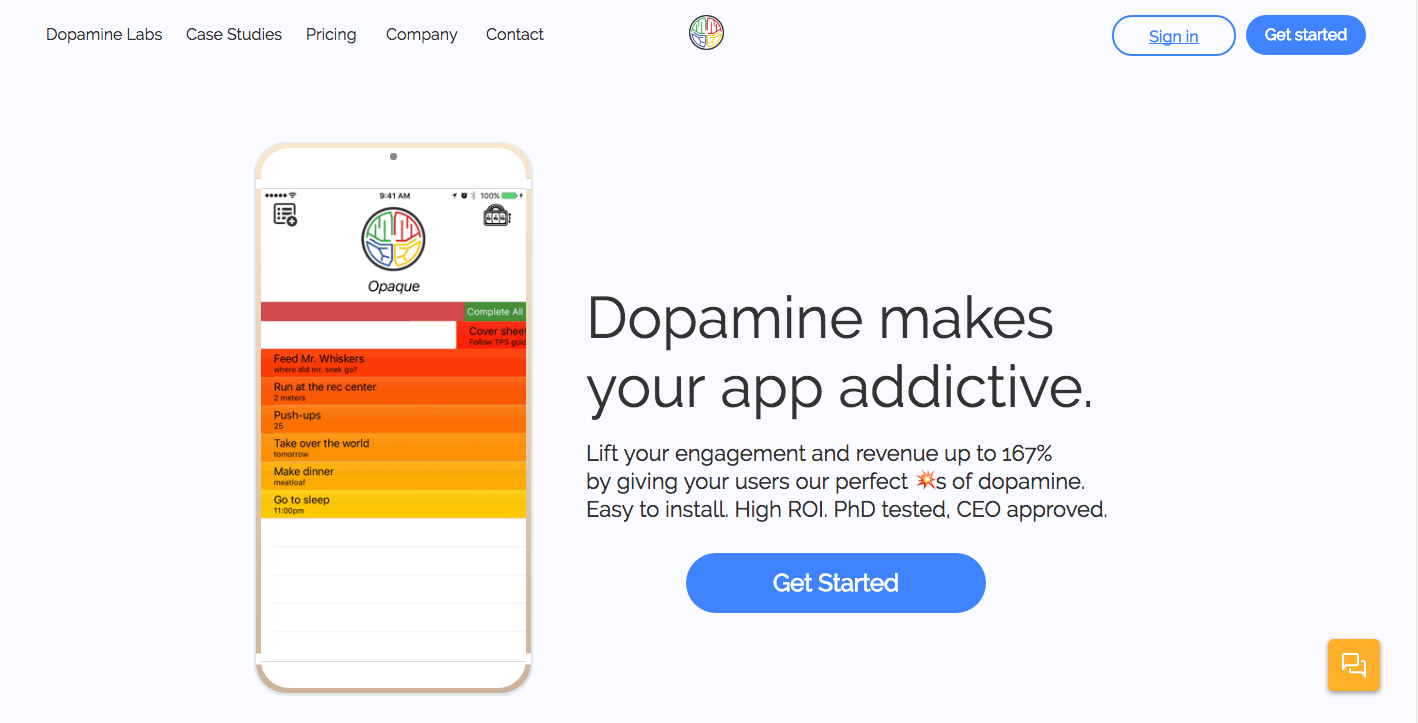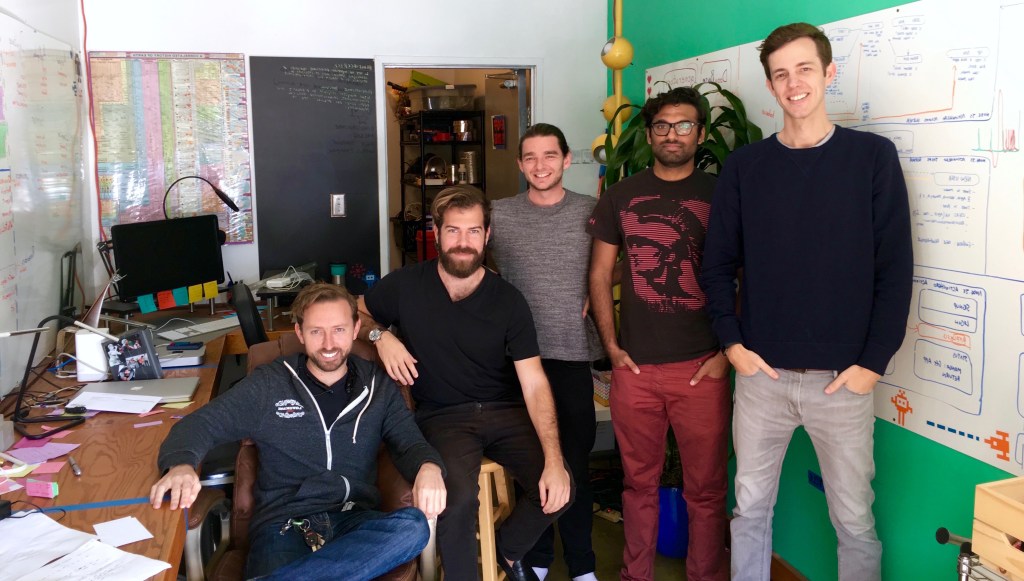With a magic line of code, Dopamine Labs aims to give any app the same addictive power that Facebook, Zynga and others have spent millions to perfect.
The company — a product of the little-heard joke “What do you get when a neuro-psychologist and a neuro-economist walk into bar?” — is the culmination of years of research that Ramsay Brown and co-founder T. Dalton Combs conducted at the University of Southern California.
Now, armed with $1 million in seed funding and some initial data that their experiments in mind control actually work, Dopamine Labs is spending money to boost its staff and sales and marketing efforts to bring more apps in on its brain science.
Much of that million in funding came from the now-defunct Lowercase Capital, which was helmed by Chris Sacca and Matt Mazzeo. Dopamine appears to be one of the firm’s last deals before both Sacca and Mazzeo became embroiled in the sexual misconduct scandals that swept the venture industry during 2017’s long, lurid summer.
While Brown condemned the behavior that’s been attributed to Sacca — and expressed disappointment that Mazzeo found the same troubles at his would-be new home, Binary Capital — he said that it didn’t dissuade him from taking Lowercase’s money.
“It’s all of our jobs in the community to make sure that those kinds of attitudes and beliefs don’t have a place in the industry going forward,” Brown told me. “It’s our job to make sure that everyone gets treated as a human, not as an object.”
Beyond Lowercase Capital, additional investments in the round came from Social Starts, one of the most prolific early-stage investment firms; Deep Fork Capital; and First Round Capital founder Howard Morgan, through a personal investment. Morgan is also taking a seat on the Dopamine Labs board of directors.
“I was excited to find a strong team that had deep knowledge of neuroscience, and an understanding of how to apply it in today’s world where people are so often overloaded with inputs,” said Morgan, in a statement. “I think Dopamine can become a major tool with many applications and am happy to have invested and to be helping them grow.”
What attracted these investors, said Brown, are the results that Dopamine Labs has seen with the pilot customers it’s enrolled for its addiction experiment.
“As you collect more data, things happen within the data set that improves the quality of the model, which in turn improves the quality of the service,” Brown said.

Managing all of this data is Skinner, an artificial intelligence software named after the famous psychologist B.F. Skinner, that monitors different prompts it’s making to the customers on apps that use Dopamine Labs’ code. Skinner’s all about learning what works for improving usage on an app or getting returning customers, and it optimizes those notifications as customers continue to use the app.
The technology previously had a Bayesian assumption about how that strategy of reinforcement would work. “It updates its probability scenarios (beliefs) about how likely causal its past decisions were to create today’s behavior and then tweaks a parameter,” Brown explained. “At the 30-day mark, when experiments on all of our users turn over, it determines what appeared to matter and what could be changed to improve.”
Essentially, the software now can learn how to improve user retention itself in each of the apps it’s working with.
“It makes those optimizations on our behalf,” Brown said. “We crafted for it to learn something about the structure of how human motivation works. It is now gathering enough data on its own to make meaningful observations to change human behavior.”
Other companies have tried to take this automated, intelligent approach to hooking people on apps. Companies like Urban Airship, Retention Sciences and Marketo come to mind for Brown — but they approach things from a marketing and advertising perspective. Brown says that may work if you’re trying to get people to simply buy things.
Using Dopamine Labs’ code, Brown posits that an app can increase usage across the board — not just sales.
If all of that sounds creepy, don’t worry… it is.
To offset the company’s mind games, Dopamine Labs developed a tool called Space that allows users to turn off certain notifications from apps or reduce their frequency… Although I think anyone can actually just turn off notifications on a phone to solve that problem.
The app was profiled in an episode of 60 Minutes.
Ultimately, Dopamine Labs predicts they can add 10 percent to a company’s revenues. In practice, their numbers are a bit all over the map, with some companies seeing bounces of more than 100 percent in terms of user interactions with, in or on an app. For other companies the boost could be around 8 percent.
There’s a lingering question in the back of my head about the morality of mind-gaming customers into coming back to an app or a site. Already, the industry struggles with the darker side of app and screen addiction.
Dopamine’s founders argue that they reserve the right to deny service to specific companies whose work seems to be off the level, but, as with most tech these days, that’s a lot of power to put in one person’s hands.
The flip side to all of that, is that if a technology like Dopamine can actually encourage retention on apps aimed at self-improvement, that’s an inarguably good thing.































Comment